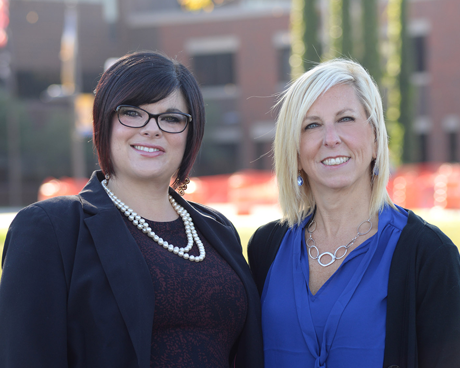Press release:
October is Domestic Violence Awareness Month and, as often as domestic violence is discussed during October, there is often one missing component in the message.
“Domestic violence is a devastating social problem that affects every segment of the population. Children are considered secondary victims of domestic violence and this is not the case,” says YWCA’s Support Services coordinator Sherry Crumity. “Children often hear and see violence at home, and through that exposure they have emotional, mental and social damage that can affect their developmental growth.”
That was the message during YWCA’s annual Partner Agency Breakfast Wednesday at the nonprofit’s North Street site. The event is a way to recognize those people that work in law enforcement, legal and justice systems, government, business and human service fields to help reduce domestic violence in the community.
Why the focus on children? Since 2015, two dozen victims and 46 children have sought safe housing at YWCA’s shelter. That means 46 little lives have all been touched by domestic violence right here in Genesee County this past year alone. Nationally, one in 15 kids is exposed to intimate partner violence each year and 70 percent of abusers seeking treatment witnessed domestic violence as a child.
This type of violence does not happen in a vacuum, said Dr. Alisa Hathaway of Project Stronger at Mount Hope Family Center. She explained it simply after a video showed one young girl’s sadness due to the abuse in her home.
“She feels invisible,” Hathaway said to the audience of about 50 people. “There’s not something wrong with her but what has happened to her.”
Children exposed to domestic violence exhibit signs of aggression, anxiety, stress, destruction of property, depression, bedwetting, challenging authority, headaches and/or nightmares, Crumity said.
Since services for children began at YWCA earlier this year, seven out of 10 have met the criteria for post-traumatic stress disorder. It can be a long-lasting struggle, she said. She has worked with adult clients who have gotten “stuck” at the age they first witnessed domestic violence.
“Children who have witnessed domestic violence often have confused and contradictory feelings. When the violence happens, children may feel scared and ashamed, or they may even think that they caused the problem,” she said. “Worse, they can grow up thinking that it's okay to hurt others or let other people hurt them.”
While most people are aware that domestic violence may include emotional, verbal, physical, sexual and even financial abuse, trauma and its signs may not be as obvious. Trauma is one’s response to a perceived threat to survival or emotional well-being. Even if a child seems “fine” on the outside, that doesn’t mean he or she is truly emotionally stable, Hathaway said.
In fact, care providers need to pay attention to those kids in particular, she said. They can be feeling shutdown, numb and separated from normal life, and therefore pull away from activities and relationships.
Crumity believes that it’s crucial for partner agencies, which also include health care professionals, schools and churches, to be trained in trauma-informed care and the effects domestic violence has on children.
“This way they are able to identify and refer families to services,” she said. “The training conducted today by Dr. Hathaway was a major step in addressing the gaps in services for children exposed to domestic violence.”
What to do? Hathaway offered some “essential elements” for providing this type of care:
- Recognize the impact trauma has had on a child;
- Help the child to feel safe and understand his or her problem behaviors;
- Respect and support the child’s positive, stable relationships;
- Be an advocate for the child and encourage trauma-focused assessment and treatment.
There is another element that is the anchor to all of these suggestions, Hathaway said.
“Take care of yourself,” she said. “It is equally important that trauma care providers take care of themselves.”
For more information about domestic violence and YWCA’s services, call (585) 343-5808 or YW’s 24-hour Domestic Violence Hotline at (585) 343-7513.

